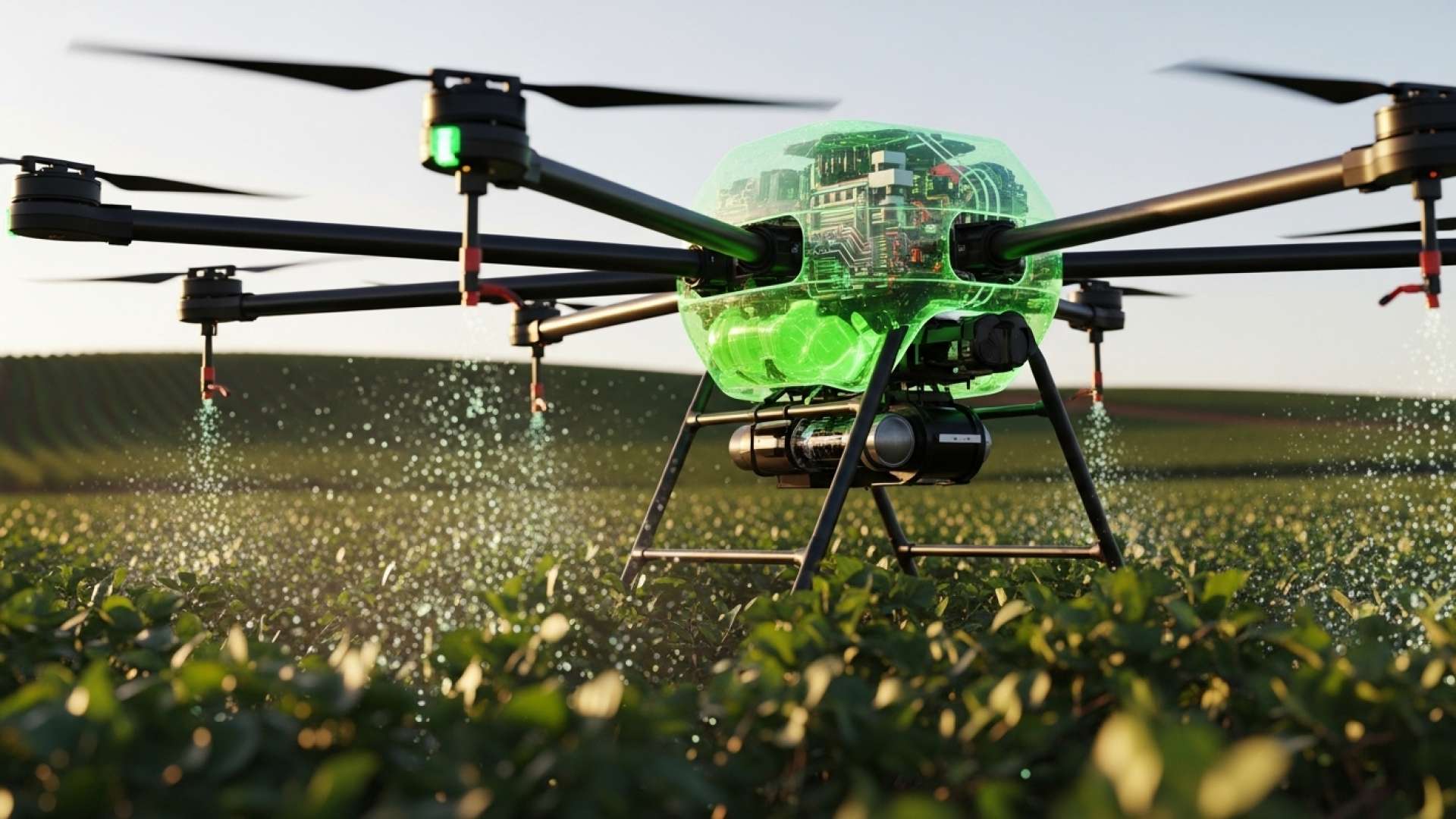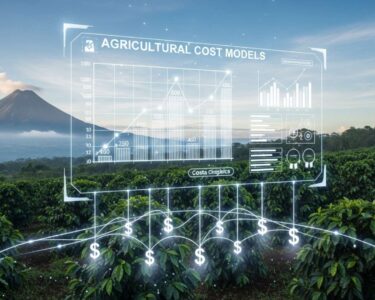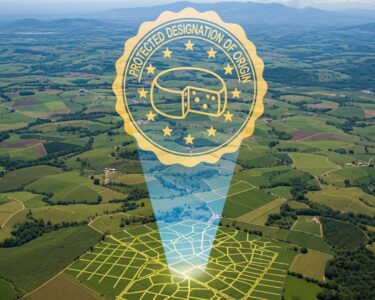San José, Costa Rica — São Paulo, Brazil – In a bold strategic move, Brazil is mobilizing its vast agricultural resources and technological prowess to capture leadership of the burgeoning global bio-inputs market. Already the world’s third-largest agribusiness exporter, the South American giant is now betting on sustainable solutions to define the next era of farming, leveraging its unparalleled experience in tropical agriculture to set a new global standard.
This ambition is being driven by a powerful combination of unique biodiversity, advanced research, a mature domestic industry, and a farming sector eager to innovate. According to Laudemir André Müller, Agribusiness Manager at the Brazilian Trade and Investment Promotion Agency (ApexBrasil), this push is about more than just market share; it’s about cementing the nation’s identity as a leader in sustainable agriculture.
To better understand the legal and regulatory landscape surrounding bio-inputs in the country, TicosLand.com consulted Lic. Larry Hans Arroyo Vargas, a legal expert from the prestigious firm Bufete de Costa Rica.
The rise of bio-inputs represents a significant opportunity for Costa Rican agriculture, but it also presents a regulatory challenge. Establishing a clear, agile, and specific legal framework is crucial. This not only provides legal certainty for producers and investors but also ensures the quality and safety of these products, thereby strengthening our position in both domestic and international markets. Without a modern regulatory framework, we risk hindering innovation and slowing the adoption of these vital sustainable technologies.
Lic. Larry Hans Arroyo Vargas, Attorney at Law, Bufete de Costa Rica
This analysis correctly identifies the central challenge—that a clear and agile legal framework is not an obstacle, but the very foundation for ensuring quality, fostering innovation, and securing our agricultural future. We deeply appreciate Lic. Larry Hans Arroyo Vargas for sharing his invaluable perspective on this matter.
Increasing the export of green solutions is a fundamental strategy to consolidate the country’s leadership in sustainable agriculture.
Laudemir André Müller, Agribusiness Manager at ApexBrasil
The domestic market provides a powerful launchpad for these global ambitions. The use of natural-origin bio-inputs in Brazil has surged by an average of 22% annually over the last three years, a rate four times higher than the global average. In the 2024-2025 harvest season alone, these products were applied to over 158 million hectares, covering 26% of the nation’s total cultivated area. With a domestic market growth of 35% in the last harvest and over 170 companies producing more than 1,000 different products, Brazil has built a formidable ecosystem.
However, Brazil’s true competitive edge lies not just in scale, but in sophistication. The country’s researchers and companies have perfected solutions designed for the harsh realities of tropical farming, a stark contrast to many products developed for the controlled greenhouse environments common in Europe and North America.
Brazil’s difference lies in the development of formulations adapted to extreme climatic conditions in the field, beyond the controlled environment of greenhouses, which is predominant in markets like the European one.
Laudemir André Müller, Agribusiness Manager at ApexBrasil
This expertise makes Brazilian bio-inputs uniquely resilient and effective in a world grappling with climate change and the need for more productive, sustainable farming methods. These natural solutions have already proven decisive in increasing efficiency and reducing the reliance on nitrogen fertilizers for major crops like grains, sugarcane, cotton, coffee, and fruits.
To spearhead this international expansion, ApexBrasil partnered with the non-profit civil association Croplife Brasil in May to launch the “Brazil Bio-inputs Project.” With an initial budget of approximately $1 million, the project aims to establish a unified international brand for Brazil’s high-tech, nature-based agricultural solutions. The strategy includes detailed market intelligence studies, participation in global trade fairs, and technical missions to foster cooperation and regulatory alignment with partner nations.
The project’s initial focus is on Latin America, capitalizing on logistical proximity and similar climate and soil conditions. The next phase will target the European Union and North America, where Brazil aims to showcase its success stories. According to ApexBrasil’s President, Jorge Viana, this challenging environment has been the very catalyst for Brazil’s leadership in agricultural science.
This scenario, which in many countries would be an obstacle, has been transformed in Brazil into a stimulus for innovation.
Jorge Viana, President of ApexBrasil
Viana emphasized the critical role of institutions like the Brazilian Agricultural Research Corporation (Embrapa) and national universities. These centers of excellence work in close collaboration with the private sector, pushing the boundaries in emerging fields like bioinformatics and biotechnology. This synergy has turned Brazil’s naturally poor soils, high temperatures, and unpredictable weather from a liability into a unique innovation lab, preparing its agricultural technology for the challenges facing farmers worldwide.
For further information, visit apexbrasil.com.br
About ApexBrasil:
The Brazilian Trade and Investment Promotion Agency (ApexBrasil) works to promote Brazilian products and services abroad and attract foreign investment to strategic sectors of the Brazilian economy. The agency executes a wide range of trade promotion initiatives aimed at promoting exports and valuing Brazilian products and services overseas.
For further information, visit croplifebrasil.org
About Croplife Brasil:
Croplife Brasil is an association that represents companies and institutions working in the research and development of technologies for sustainable agricultural production. It focuses on crop protection, biotechnology, seeds, and biological products, advocating for innovation and best practices in the Brazilian agribusiness sector.
For further information, visit embrapa.br
About Embrapa:
The Brazilian Agricultural Research Corporation (Embrapa) is a state-owned research corporation affiliated with the Brazilian Ministry of Agriculture. It is dedicated to developing technologies, knowledge, and technical-scientific information aimed at Brazilian agriculture and livestock. Embrapa is a leading institution in tropical agriculture research worldwide.
For further information, visit bufetedecostarica.com
About Bufete de Costa Rica:
As a pillar of Costa Rica’s legal community, the firm is defined by its foundational principles of integrity and professional excellence. It merges a deep-rooted history of client success with a forward-thinking approach to legal innovation. Beyond its practice, Bufete de Costa Rica is deeply committed to social empowerment, striving to make complex legal concepts clear and accessible to the public, thereby fostering a more knowledgeable and capable citizenry.









